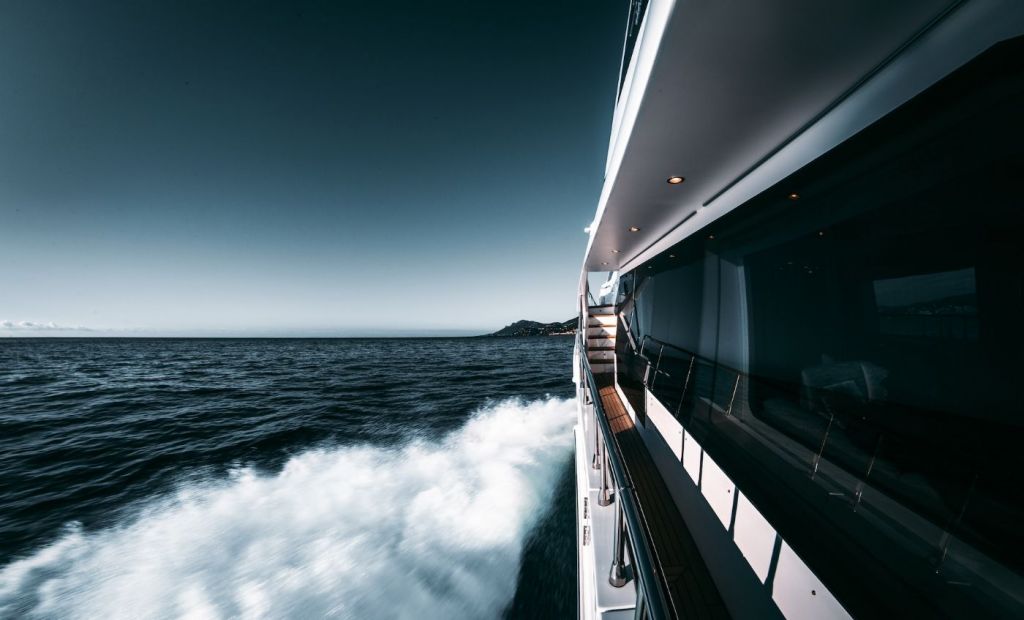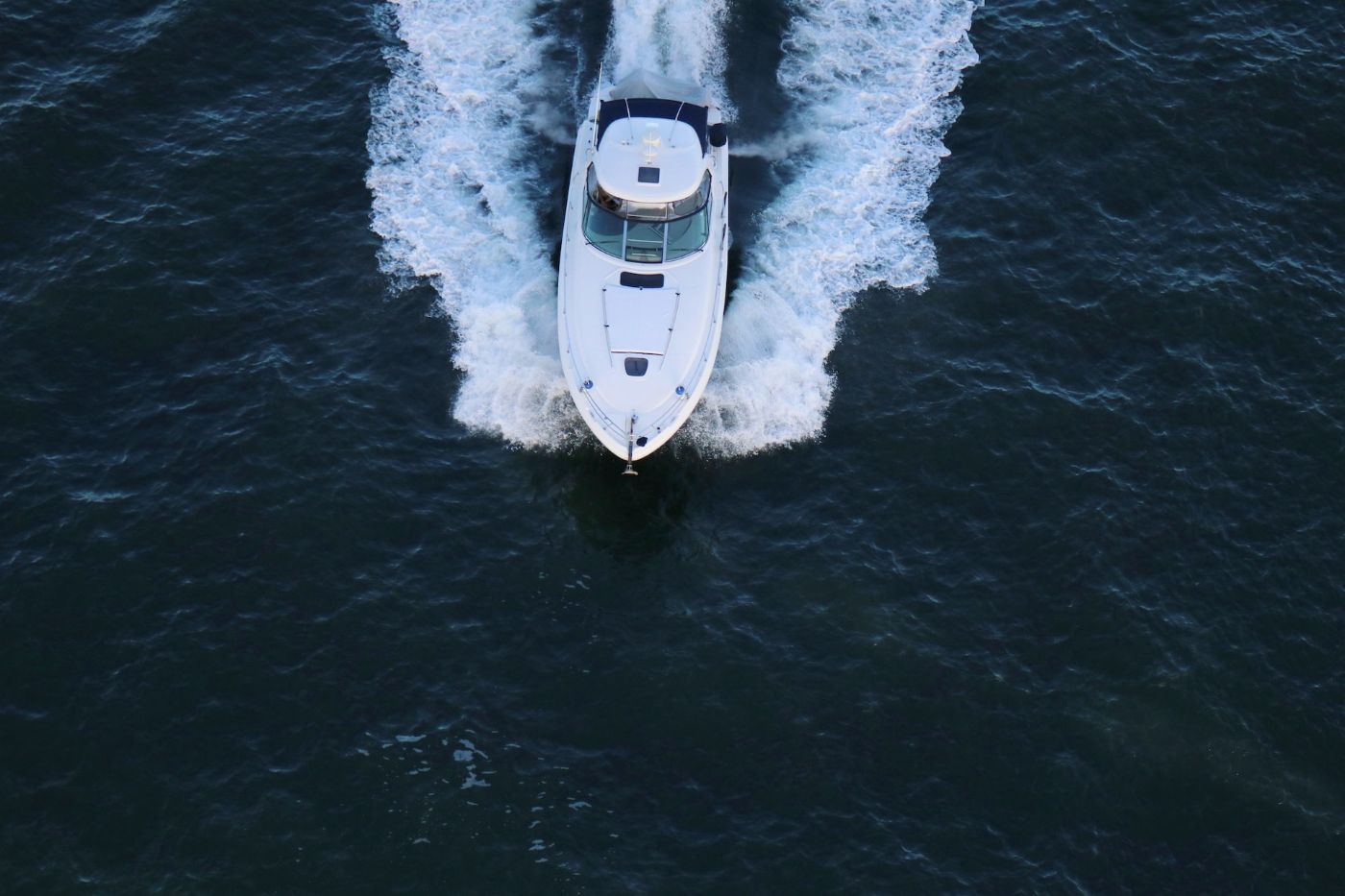What Fuel Do Yachts Use? (All Types Explained in Detail)
Yachts, just like cars, require fuel to operate. However, unlike cars that run on gasoline or diesel, yachts can run on a variety of fuels, from traditional fossil fuels to more eco-friendly alternatives. In this article, we'll explore the different types of fuel used on yachts in full detail.
Some of the most common yacht fuels include diesel, gasoline, biofuels, natural gas, propane fuel, and electric or hybrid fuel systems that combine diesel and electric power. Using electricity produces no emissions or noise pollution, making it an eco-friendly option. However, they have a limited range and require frequent charging.
Sailing yachts typically use diesel, biodiesel, or electric propulsion systems, with diesel being the most commonly preferred. But what type of fuel is best for a specific type of yacht? Let's find out.
Summary
- Diesel fuel is highly efficient and widely available in most marinas; however, it produces more emissions than gasoline.
- Bio-diesel fuel can be used in any diesel engine with little to no modifications; however, it is not widely available and can be more expensive than diesel.
- Electric fuel sources are virtually silent and produce zero emissions, but you may need to recharge your batteries frequently.
- Converting your yacht to use natural gas can have significant upfront costs since you will need specialized refueling infrastructure.
- Propane is widely available at marinas, is less expensive than diesel or gasoline, and can be used in any gasoline engine.

On this page:
Types Of Fuel Used In Yachts
Below is a table showing the most common types of yacht fuel and their advantages and disadvantages:
| Fuel type | Advantages | Disadvantages |
|---|---|---|
| Diesel | - High energy density - Good performance - Fuel efficiency - Durability |
- Higher cost - Slower acceleration - Environmental impact |
| Gasoline | - Fast acceleration - Lower cost - Easy to find |
- Lower energy density - Lower fuel efficiency - Less durable |
| Electric | - Quiet operation - Environmentally friendly - Low operating costs |
- Limited range - Limited speed - Higher initial cost |
| Natural Gas | - Lower emissions - Lower fuel cost |
- Limited availability - Higher initial cost - Requires specialized infrastructure |
| Propane | - Lower emissions - Lower fuel cost - Widely available |
- Limited range - Requires specialized infrastructure - Higher initial cost |
| Bio-diesel | - Renewable and environmentally friendly - Lower emissions |
- Limited availability - Higher cost |
Diesel fuel is the most common type of fuel used in yachts
Diesel fuel is a highly efficient fuel that provides excellent performance and fuel economy. It is also widely available and can be found at most marinas and fuel docks.
Advantages of diesel fuel
- Diesel fuel has a higher energy density than gasoline, which means you can get more power from a smaller amount of fuel.
- They are known for their torque and power making them ideal for larger yachts and long-range cruising.
- Diesel engines are more fuel-efficient than gasoline engines so you can save money on fuel costs in the long run.
- Diesel engines are built to last, and they require less maintenance than gasoline engines. For more information on the life expectancy of a marine diesel engine, you can read this article.
Disadvantages of diesel fuel
- Diesel fuel is generally more expensive than gasoline.
- Diesel engines are slower to accelerate than gasoline engines.
- Diesel fuel produces more emissions than gasoline, which can have a negative impact on the environment.

Gasoline is another fuel option for yachts
Small personal boats usually use regular gasoline with 10% ethanol or lower. However, larger boats like yachts usually use off-road diesel.
Advantages of gasoline
- Gasoline engines are known for their fast acceleration, which makes them ideal for water sports and other activities that require quick bursts of speed. They are also used to power smaller types of yachts.
- Gasoline is widely available so it is easy to refuel your yacht.
Disadvantages of gasoline
- Gasoline has a lower energy density than diesel fuel.
- Gasoline engines are less fuel-efficient than diesel engines, so you'll spend more money on fuel in the long run.
- Gasoline engines are generally less durable than diesel engines, so they require more maintenance and may need to be replaced more frequently.
Bio-diesel fuel is a renewable fuel source
Bio-diesel fuel is a renewable fuel source that is made from vegetable oils, animal fats, or recycled restaurant grease. It is a clean-burning fuel that produces fewer emissions than traditional diesel fuel. Bio-diesel fuel can be used in any diesel engine with little to no modifications.

Advantages of bio-diesel
- Bio-diesel is made from renewable sources and produces fewer emissions than diesel.
- Bio-diesel produces fewer emissions than diesel, which makes it a more environmentally friendly option.
Disadvantages of bio-diesel
- Bio-diesel is not widely available.
- Bio-diesel is generally more expensive than diesel.
Electric and hybrid fuel systems are becoming more common in yachts
These systems use electric motors and batteries to power the yacht, with a diesel or gasoline generator as a backup. Electric and hybrid systems are quiet, efficient, and environmentally friendly.
Advantages of electric motor fuels
- Electric motors are virtually silent, which makes for a more peaceful cruising experience.
- Electric motors produce zero emissions.
- Electric motors are very efficient, so you'll spend less money on fuel and maintenance in the long run.
Disadvantages of electric motor fuels
- Electric motors have a limited range so you'll need to recharge your batteries frequently.
- Electric motors are generally slower than gasoline and diesel engines.
- Electric propulsion systems are generally more expensive than traditional gasoline or diesel engines.
Natural gas fuel can also be an option for yachts
Natural gas is a clean-burning fuel that produces fewer emissions than diesel or gasoline. However, it is not widely available at marinas and fuel docks. If you plan on using natural gas as your yacht's primary fuel source, you might need to install a natural gas storage tank on board.
Advantages of natural gas
- Natural gas produces fewer emissions than diesel or gasoline, which makes it a more environmentally friendly option.
- Natural gas is generally less expensive than diesel or gasoline, which can help reduce your operating costs.
Disadvantages of natural gas
- Natural gas is not widely available so it's difficult to find refueling stations.
- Converting your yacht to use natural gas can be expensive
- Natural gas requires specialized refueling infrastructure
Propane is another clean-burning fuel option for yachts
Propane is widely available at marinas and fuel docks and is less expensive than diesel or gasoline. It can be used in any gasoline engine with little to no modifications.
Advantages of propane
- Propane produces fewer emissions
- It is generally less expensive, which can help reduce your operating costs.
- Propane is widely available, which makes it easy to refuel your yacht.
Disadvantages of propane
- Propane has a lower energy density than diesel or gasoline.
- Propane requires specialized refueling infrastructure, which can be difficult to find in some areas.
- Converting your yacht to use propane can be expensive.
Fuel For Different Types Of Yachts
Below is a table showing the different types of fuel used for different types of yachts:
| Type of yacht | Fuel type |
|---|---|
| Sailing yacht | Diesel, biodiesel, electric |
| Motor yacht | Diesel, gasoline, biodiesel, electric |
| Catamaran | Diesel, gasoline, biodiesel, electric |
| Trawler | Diesel, biodiesel, natural gas |
| Superyacht | Diesel, gas turbine, hybrid, electric |
| Megayacht | Diesel, gas turbine, hybrid, electric |
Fuel for sailing yachts
Sailing yachts typically use diesel, biodiesel, or electric propulsion systems. Diesel engines are commonly used in larger sailing yachts that require a lot of power, while biodiesel is often used by eco-conscious yacht owners who want to reduce their environmental impact.
Electric propulsion systems are becoming increasingly popular in sailing yachts due to their quiet operation and zero emissions, making them an excellent choice for eco-conscious yacht owners.
If you want to know how much fuel a sailboat consumes, you can read this article.

Fuel for motor yachts
Motor yachts can use a variety of fuel types, including diesel, gasoline, biodiesel, and electric. Diesel engines are commonly used in larger motor yachts that require a lot of power, while gasoline engines are often used in smaller sporty yachts that are designed for speed and agility.
Biodiesel is often used by eco-conscious yacht owners who want to reduce their environmental impact. Electric motors are becoming more popular on motor yachts, particularly for smaller vessels. However, they may have a limited range and require frequent recharging, which can be a challenge on longer trips.
Fuel for catamarans
Generally, diesel fuel is the most common and preferred fuel for catamaran yachts because it provides better fuel efficiency, longer range, and greater power compared to gasoline. However, some catamaran yachts may also use alternative fuels such as biofuels or electric propulsion systems.
If you own a catamaran or plan to buy one, fuel costs are one of the recurring costs you might need to account for.
Fuel for trawlers
Traditionally, trawlers have used diesel as their primary fuel source because diesel engines are known for their efficiency and durability. Diesel fuel is also widely available and relatively inexpensive compared to other fuel options.
However, there are alternative fuel options that are becoming more popular in the marine industry, such as liquefied natural gas (LNG) and biodiesel. LNG is a cleaner-burning fuel that emits fewer greenhouse gases and pollutants than diesel, making it a more environmentally friendly option.
Biodiesel is a renewable fuel source made from vegetable oils or animal fats, which reduces dependence on fossil fuels and has lower emissions.

Fuel for superyacht
Diesel fuel is often the preferred choice for superyachts due to its high energy density and efficient combustion properties. Diesel fuel is also readily available at most ports around the world, making it a convenient choice for yacht owners and operators.
However, some superyachts may also use alternative fuels such as biodiesel or liquefied natural gas (LNG) for environmental or cost-saving reasons. Some superyachts also use gas turbines or electric propulsion systems as an alternative to traditional diesel engines.
Gas turbines are known for their high power output and efficiency, making them a popular choice for larger yachts that require high speeds or long-range cruising capabilities. Electric propulsion systems, on the other hand, are becoming increasingly popular due to their environmental benefits and quiet operation.
Electric propulsion systems can be powered by batteries, fuel cells, or a combination of both, and can provide a smooth and efficient ride for passengers. However, electric propulsion systems may not be suitable for all types of superyachts, as they typically require a significant amount of battery storage and charging infrastructure, which can be challenging to install and maintain on larger vessels.
When chartering a superyacht, fuel costs generally cost around $4,760 to $11,900 per day (depending on distance and speed).
Fuel for megayacht
In general, the most common fuels used for megayachts are diesel and gasoline. Diesel is the preferred fuel for larger yachts because it is more efficient and has a longer range than gasoline.
Diesel engines are also more durable and require less maintenance than gasoline engines. Additionally, it is more widely available in most parts of the world, making it easier to refuel during long voyages.
On the other hand, gasoline is preferred for smaller yachts because it is more affordable and easier to handle than diesel. Gasoline engines are also quieter and more responsive than diesel engines so they are ideal for high-speed cruising.
In recent years, there has been a growing interest in using alternative fuels such as biodiesel, hydrogen, and electric power for mega yachts. These fuels are more environmentally friendly and can help reduce the carbon footprint of yachting. However, they are still in the early stages of development and may not be suitable for all types of yachts.
Factors To Consider When Choosing Yacht Fuel
Here are some of the most important factors to consider when choosing the right fuel for your yacht:
Consider the cost of fuel when choosing the right fuel for your yacht
Below is a table comparing the estimated pricing of alternative yacht fuels as compared to traditional fuel:
| Fuel type | Average price compared to traditional fuel (in the long run) |
|---|---|
| Biodiesel | 10-30% more expensive than diesel fuel |
| Propane | 20-30% less expensive than diesel or gasoline |
| Natural Gas | 30-50% less expensive than diesel or gasoline |
| Electric | 50-70% less expensive than traditional fuels |
Propane, natural gas, and electric power can certainly be used as alternative fuels for yachts, and they can be cost-effective options in some cases. However, propane and natural gas may not be readily available in all locations, and electric power requires a significant amount of battery storage and charging infrastructure, which can be expensive and may not be practical for all yachts.
Availability is another important factor to consider
Some areas may have limited access to certain types of fuel due to a lack of infrastructure, regulations, or other factors. For example, biodiesel may not be readily available in some areas, while natural gas and propane may require additional storage equipment that may not be practical for all yachts.
Therefore, you might need to plan ahead and make sure you have enough fuel for your trip. This means considering the distance you will be traveling and the availability of fuel along your route. If you are traveling to remote areas or areas without access to the necessary infrastructure, it may be more practical to choose a fuel that is more widely available.
The environmental impact of fuel is a growing concern for many yacht owners
Some fuels are more environmentally friendly than others, so you can perhaps try to choose a fuel that minimizes your yacht's impact on the environment. Biofuels and electric power are becoming more popular options for yacht owners who want to reduce their carbon footprint.
The type of fuel you choose must be compatible with your yacht's engine
Some engines are designed to run on specific types of fuel, and using the wrong fuel can cause significant damage to the engine and even pose safety risks.
A gasoline engine is designed to run on gasoline fuel, while a diesel engine is designed to run on diesel fuel. If you mistakenly use gasoline in a diesel engine, the fuel injection system can be damaged, and the engine may not start or run properly.
The distance and duration of your yacht trips can also affect your choice of fuel
If you're planning a long trip, you might need to consider the range of your fuel. Some fuels have a longer range than others, meaning they can power your yacht for a longer distance and duration before needing to refuel.
Diesel fuel generally has a longer range than gasoline, making it a popular choice for long-range yacht trips. This is because diesel engines are generally more fuel-efficient than gasoline engines and can travel farther on a tank of fuel.
If you're only planning a short trip, you may be able to use less expensive fuel, such as regular gasoline. This can save you money on fuel costs, but ensure that the fuel you choose is still appropriate for your yacht's engine.
Did you find the answer to your specific question?
👍 0 👎 1




Leave a comment